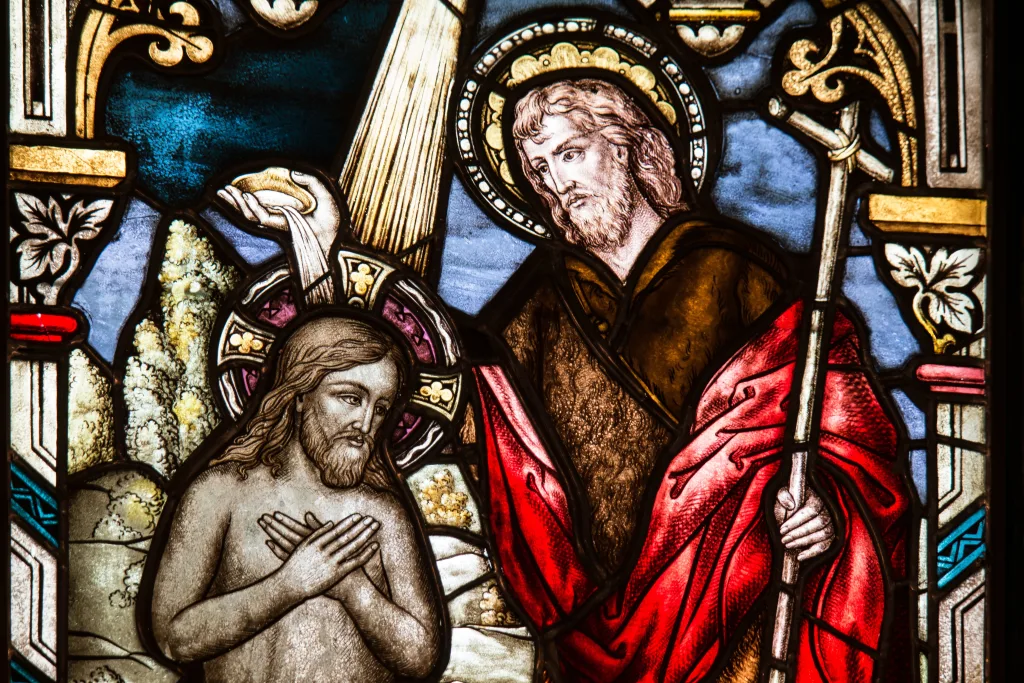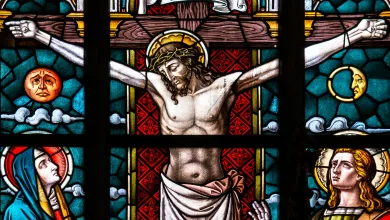Why Should We Believe That Jesus Christ Is God?

One of the most remarkable foundations of the Christian faith is that Jesus Christ is eternal God. This is disputed by other religions (including the other monotheistic faiths, Judaism and Islam), by Mormons and Jehovah’s Witnesses, and certainly by many skeptics. Without question, lacking this central pillar, Christianity fails and has nothing to offer anyone.
It is no surprise that from very early on, believers have contended for, fought for, and died for this teaching—the deity of Jesus Christ. In a nutshell, the doctrine is that Jesus Christ is fully God (not half God or one-third God) and eternally God (he did not become God at some point in time). Anything less has been considered heresy.
There are many lines of argument for the deity of Jesus. Plainly, the fact is crystal clear if one allows Scripture to say what it says. Here are a few of those contentions and a few examples.
Not only did Christ exist before he was conceived by Mary (this is what preexistence means), he has always been; he is eternal. John 1:1 says, “In the beginning was the Word [referring to Christ], and the Word was with God, and the Word was God.” This last phrase is also a straightforward statement of his deity.
Jesus said, “Before Abraham was born, I am!” (John 8:58), both a declaration of eternality (“before Abraham was born”) and of deity (“I am”). The Jews would have understood “I am” as a reference to the name of their God: Yahweh (see Exodus 3:14–15). That is why they immediately sought to kill him (John 8:59). The famous prophecy of Messiah’s birthplace also says of him, “whose origins are from of old, from ancient times” (Micah 5:2).
Jesus Christ also has other divine attributes: omnipresence (demonstrated in his promise to be with all believers—e.g., Matthew 28:20), omnipotence (demonstrated through his miracles—e.g., Luke 8:23–25), and omniscience (demonstrated by his knowledge of human thoughts—e.g., Luke 6:8; 11:17). Only God has these three characteristics.
Another line of evidence is that Jesus Christ did what God does. For example, Jesus is Creator and sustainer of all things (John 1:3; Colossians 1:16–17; Hebrews 1:2–3). He gives life, specifically eternal life (John 5:21; 10:28; 11:25–26). A good example of Jesus’ doing what only God can do is his forgiving the sins of a paralyzed man. The Jewish religious leaders responded, “Who can forgive sins but God alone?” Exactly! When Jesus healed the man, he said he did it because “I want you to know that the Son of Man has authority on earth to forgive sins” (see Mark 2:1–12).

In addition to being who God is and doing what God does, another evidence of his deity is that he made that claim himself: “I and the Father are one” (John 10:30; also 8:58, noted above). After his arrest, when the high priest demanded of Jesus, “Tell us if you are the Messiah, the Son of God” (Matthew 26:63), he replied, “You have said so. But I say to all of you: From now on you will see the Son of Man sitting at the right hand of the Mighty One and coming on the clouds of heaven” (v. 64).
Here Jesus quotes from two messianic prophecies (Psalm 110:1; Daniel 7:13), and that those listening understood these as references to a divine being is indicated by their reaction: “He has spoken blasphemy!… He is worthy of death” (Matthew 26:65–66). This was the usual Jewish reaction to his claims of deity (e.g., John 8:59; 10:31).
Some claims that may seem obscure to us couldn’t be missed by the Jews who heard Jesus, as evidenced by this same reaction. For example,
“My Father is always at his work to this very day, and I too am working.” For this reason they tried all the more to kill him; not only was he breaking the Sabbath, but he was even calling God his own Father, making himself equal with God.
John 5:17–18
Another unavoidable argument for Christ’s deity is that he accepted worship. He went so far as to say, “Whoever does not honor the Son does not honor the Father, who sent him” (v. 23). In other words, if we don’t worship him, we can’t worship God.
A little while after Jesus had given sight to the man born blind (John 9), he came back to this man, who had not yet seen him, and said, “Do you believe in the Son of Man?” When the man realized who this was, he said “ ‘Lord, I believe,’ and he worshiped him” (vv. 35–38). When Jesus appeared to his disciples after his resurrection (John 20), he said to Thomas, “ ‘Stop doubting and believe.’ Thomas said, ‘My Lord and my God!’ ” (vv. 27–28).
What is so amazing about these examples is that these two loyal (strictly monotheistic) Jews did what they did. They believed in one God who has no physical form (thus the first and second commandments). Like others before them (e.g., see Daniel 3), they would rather have died than worship anyone but the one true God; the very thought was repugnant. But these men, like many others, worshiped Jesus because they had become completely convinced that this man is the one true God.
In historical context, what they did was absolutely revolutionary. And Jesus did not rebuke them. If thinking that he was God had revealed a terrible misunderstanding, Jesus could have taken the opportunity to say, “Hold on! Don’t worship me! Worship only God” (as, for instance, Paul and Barnabas did, and as angels repeatedly did). Jesus accepted worship because he is God and is worthy of it.
One of the reasons this doctrine is so crucial is that if Jesus is not fully God, there is no salvation to be found in his death. The sacrifice that would be sufficient for the many sins of the many people had to be a sacrifice of infinite value. No human being could provide this kind of sacrifice; only God himself could. This is why the early Christians were so appalled at the deity of Jesus being denied. They knew his deity was absolutely vital for their salvation.

INTERESTING FACT
Two of the clearest New Testament texts regarding the deity of Jesus are Colossians 2:9: “In Christ all the fullness of the Deity lives in bodily form,” and Hebrews 1:3: “The Son is the radiance of God’s glory and the exact representation of his being.”
Aaron, D. (2012) Understanding Theology in 15 Minutes a Day. Minneapolis, MN: Bethany House Publishers, pp. 95–98.



